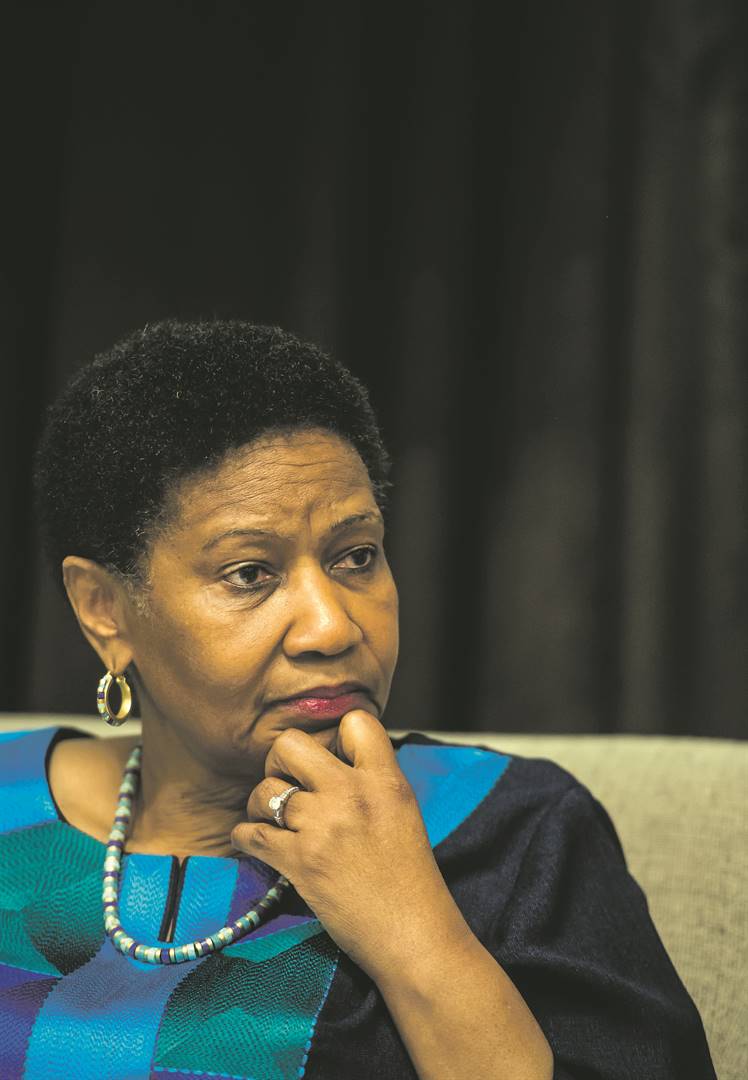
What is evident when looking at the many corruption scandals that have rocked our country – the information being shared at the Zondo commission of inquiry into state capture; the reports on the Steinhoff financial irregularities; and the corporate governance shortcomings exposed at various other inquiries – is that the private and public sectors are equal ethical offenders.
Added to this, the idealistic and, dare I say, stereotypical patronising image of women being as “pure as the driven snow” has been exposed to be false.
It is neither the sector nor the gender that determines our ethical compass, but our individual values and characters.
That does not mean South Africa should not strive for equal representation in leadership or not support the efforts by Phumzile Mlambo-Ngcuka, the executive director of UN Women, who has been lobbying the ANC to have a woman deputy president.
Women should not be unfairly subjected to harsher and more unrealistic standards than men to occupy the leadership positions they deserve.
Read: Exposing corruption is the best way to heal – Baleka Mbete
According to Stats SA, we are a country of about 57 million people, of which women comprise 51% of the population, so women having a 50-50 representation across all leadership levels, sectors and institutions is a goal worth aiming for.
Research on corporate boards of directors has proved that gender diversity does improve governance and financial performance.
The crux of the issue about woman representation is that all available skills and talents should be used effectively by a country that has invested in its education to contribute to the leadership capacity, and to create a prosperous country for all.
That should not even be a debate.
There is a quote that has tormented me in the past few years as I observed the “new South Africa” wrestling with its moral compass.
Thomas Jefferson is attributed with having said: “All tyranny needs to gain a foothold is for people of good conscience to remain silent.”
What has been most concerning is that South Africa has more people older than 15 than younger, so our adult population with the capacity to use judgement, to make decisions and to take action is sizeable.
However, it took us getting to the brink of being a failed state to actively resist the downward path our country was taking.
We seemed to have been paralysed as we watched our country’s coffers being looted.
The lack of progressive behaviours was evident also in corporate South Africa and in civil society, which seemed not to genuinely embrace our Constitution and the new values of human dignity (the achievement of equality and the advancement of human rights and freedoms), nonracialism and nonsexism, and the supremacy of the Constitution and rule of law.
Frankly, they were in many instances disrespected and ignored.
This is why, 25 years into our democracy, the SA Human Rights Commission is seeing an increase in racism complaints; broad-based BEE fronting had to be made a criminal offence as it was sabotaging transformation; and the appointment of black people and women into leadership positions on JSE-listed companies and non-listed private sector organisations remains abysmal.
In the past year, I have done more advisory and strategic work around diversity and inclusion than on corporate strategy.
I feel like I am in a time warp after having already developed and implemented transformation strategies and programmes in the late 1990s and early 2000s at the beginning of my career, following the enactment of the employment equity and broad-based BEE acts.
What have we all been doing over the past 25 years, black and white; men and women?
It is either that there are in fact fewer people of good conscience and high moral character in our country than just those we all like to hide behind who loot ungraciously, or we lack the courage of conviction to do right by our country and for the long-term benefit of South Africa.
Yes, sabotaging the laws of the land and not living the values of our Constitution is unethical conduct.
So let us stop pointing fingers, change our own behaviour and do right by not paying lip service to transforming our society and the economy so that we can, once and for all, eradicate the injustices of our past to improve the quality of life of all citizens, free the potential of each person and build a united and democratic South Africa that is able to take its rightful place as a sovereign state in the family of nations.
Msomi is chief executive of Busara Leadership Partners
TALK TO US
How do we make sure people stop pointing fingers and change their behaviour for the better?
SMS us on 35697 using the keyword RIGHT and tell us what you think. Please include your name and province. SMSes cost R1.50. By participating, you agree to receive occasional marketing material




 Publications
Publications
 Partners
Partners








